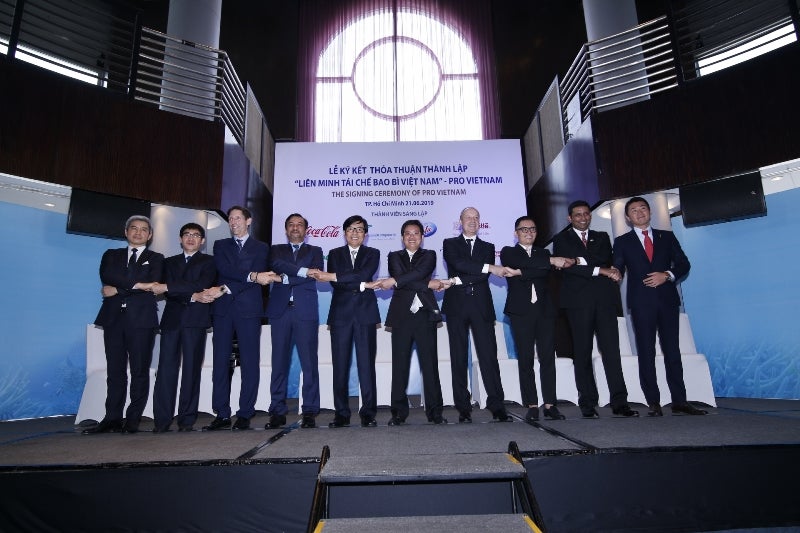
Nine consumer goods and packaging companies have aligned to form a new recycling initiative called Packaging Recycling Organization Vietnam.
Coca-Cola Vietnam, FrieslandCampina, La Vie, Nestlé Vietnam, NutiFood, Suntory PepsiCo Vietnam, Tetra Pak Vietnam, TH Group and URC Vietnam have voluntarily established the not-for-profit organisation, with the aim of improving packaging collection and recycling from participating brand owners and other stakeholders.

Discover B2B Marketing That Performs
Combine business intelligence and editorial excellence to reach engaged professionals across 36 leading media platforms.
The scheme will help drive the circular economy and ensure packaging recycling is more accessible and sustainable across Vietnam.
PRO Vietnam’s four major goals are to spread awareness on recycling and segregation, boost the current packaging collection ecosystem, support recycling programmes of processors and those who recycle, and partner with the government to recycle.
The voluntary, public-private partnership will focus on generating jobs for individuals and businesses working on post-consumer packaging.
In addition, PRO Vietnam will partner with universities’ research centres to explore suitable recycling solutions for Vietnam’s environment.

US Tariffs are shifting - will you react or anticipate?
Don’t let policy changes catch you off guard. Stay proactive with real-time data and expert analysis.
By GlobalDataPRO Vietnam chairman Pham Phu Ngoc Trai said: “We believe to sustain business growth we have to be committed to the society and the environment, contributing towards a clean, green and beautiful Vietnam.”
The coalition has also encouraged more companies and stakeholders in Vietnam to join the initiative.
It plans to work with its members to ensure that all of the packaging material they sell is then collected to be recycled by 2030.





